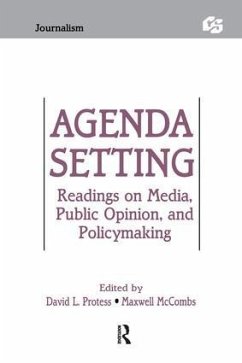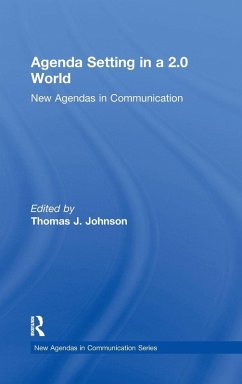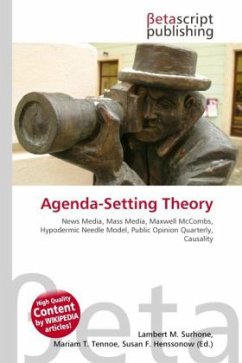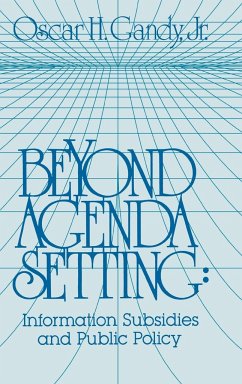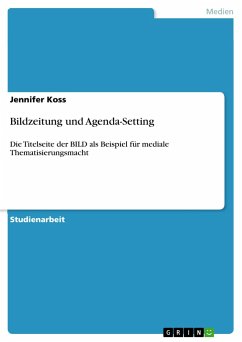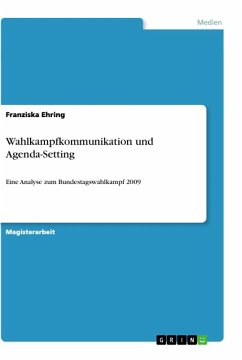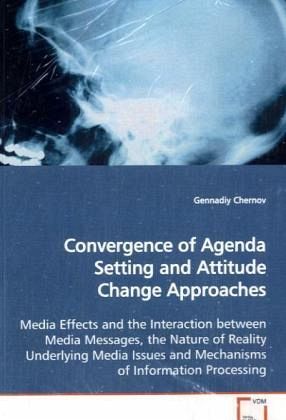
Convergence of Agenda Setting and Attitude Change Approaches
Media Effects and the Interaction between Media Messages, the Nature of Reality Underlying Media Issues and Mechanisms of Information Processing
Versandkostenfrei!
Versandfertig in 6-10 Tagen
39,99 €
inkl. MwSt.

PAYBACK Punkte
20 °P sammeln!
Agenda setting shows that people perceive asimportant those issues, which are covered by themedia more frequently. Recently, agenda-settingscholars started to explore the link betweenagenda-setting and attitude change. This study testswhether experience with issues and specificity ofmessages lead to both agenda-setting and attitudinaleffects. This study tested whether the ElaborationLikelihood Model (the ELM) complements priming inbringing about agenda-setting and attitudinaleffects. Findings indicate that reading the storiesleads to the heightened issue importance for theissues with which ind...
Agenda setting shows that people perceive as
important those issues, which are covered by the
media more frequently. Recently, agenda-setting
scholars started to explore the link between
agenda-setting and attitude change. This study tests
whether experience with issues and specificity of
messages lead to both agenda-setting and attitudinal
effects. This study tested whether the Elaboration
Likelihood Model (the ELM) complements priming in
bringing about agenda-setting and attitudinal
effects. Findings indicate that reading the stories
leads to the heightened issue importance for the
issues with which individuals do not have direct
experience. Attitude favorability towards issues
increases if individuals do not have direct personal
experience with it, and if a story about it contained
general attributes.For the ELM variables, lower level
of knowledge about issues lead to higher issue
perceived importance. Knowledge and elaboration
affect the overall attitude favorability. This study
develops an explanatory mechanism why agenda setting
takes place. The analysis should be useful for
scholars and professionals interested in agenda
setting theory.
important those issues, which are covered by the
media more frequently. Recently, agenda-setting
scholars started to explore the link between
agenda-setting and attitude change. This study tests
whether experience with issues and specificity of
messages lead to both agenda-setting and attitudinal
effects. This study tested whether the Elaboration
Likelihood Model (the ELM) complements priming in
bringing about agenda-setting and attitudinal
effects. Findings indicate that reading the stories
leads to the heightened issue importance for the
issues with which individuals do not have direct
experience. Attitude favorability towards issues
increases if individuals do not have direct personal
experience with it, and if a story about it contained
general attributes.For the ELM variables, lower level
of knowledge about issues lead to higher issue
perceived importance. Knowledge and elaboration
affect the overall attitude favorability. This study
develops an explanatory mechanism why agenda setting
takes place. The analysis should be useful for
scholars and professionals interested in agenda
setting theory.



